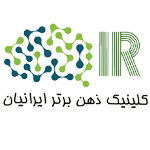کامپیوتر می تواند به دانش آموزان دارای اختلال ADHD
در جهت آموزش مغز آنها کمک كند
منتشر شده در17 فوريه 2014
با توجه به مطالعه انجام شده توسط متخصصين كودكان در مارس 2014 با موضوع ” آموزش نوروفیدبک در مدرسه برای اختلال ADHD “که بهبود پایدار در یک آزمايش کنترل شده به صورت تصادفی را مورد بررسی قرار داده و در 17 فوريه همان سال منتشر شده است :
نوروفیدبک ، نوعی از آموزش با استفاده از یک برنامه کامپیوتری برای کودکان با اختلال نقص توجه و فعاليت زياد (ADHD) است كه می تواند به بهبود طولانی مدت و ماندگار این کودکان کمک كند. نوروفیدبک عبارت است از بازخورد فوری (به صورت شنيداری و ديداری) به فرد برای جلب توجه او ، زمانی كه تمرکز كردن را تمرین می كند. همچنين نوروفیدبک به کاربران در جهت ايجاد تغییر و نظارت بر الگوهای امواج مغزی ، برای بهبود عملکرد و افزايش توجه آنها آموزش می دهد.
محققان 102 کودک را مورد بررسی قرار داده و پس از انجام دو نوع از آموزش های کامپیوتری ، به مقايسه توجه و عملکرد اجرایی آنها پرداختند: نوروفیدبک و آموزش شناختی. این دانش آموزان با دانش آموزانی که برای مطالعه هیچ آموزش کامپیوتری نديده بودند ، مقایسه شدند. کودکانی كه هر دو نوع آموزش را ديده بودند به نتایج بهتری در افزايش توجه و یادگیری در شش ماه بعد دست يافتند. گروهی كه فقط از نوروفیدبک استفاده كرده بودند در مقايسه با گروهی که آموزش شناختی دریافت کرده بود ، پیشرفت های قابل توجهی را نشان داده و درجات و امتيازهای بالاتری را بدست آوردند.
این اولین آزمايش تصادفی بزرگ است که به ارزیابی تأثیر طولانی مدت آموزش های کامپیوتری در مدرسه برای ADHD می پردازد و محققين مراحل تحقیقاتی را که در آینده برای پیشبرد انجام این روش از توانمند سازی مغزی لازم است ، را شناسایی كرده اند.
آکادمی طب اطفال آمریکا ، سازمانی است كه از 60 هزار فوق تخصص طب کودکان و متخصص جراحی کودکان ، در جهت رسيدگی به بهداشت، ایمنی و رفاه نوزادان، کودکان، نوجوانان و بزرگسالان تشكيل شده است. برای اطلاعات بيشتر به سايت www.AAP.org مراجعه كنيد.
ترجمه کیانا کیانپور
کارشناس ارشد روانشناسی تربيتی
متن اصلی مقاله
Computer Feedback Can Help Students With ADHD Train Their Brains
For Release: February 17, 2014
Neurofeedback, a type of training using a computer program for children with attention-deficit/hyperactivity disorder (ADHD), can contribute to lasting improvements for these children, according to a study in the March 2014 issue of Pediatrics, “In-School NeurofeedbackTraining for ADHD: Sustained Improvement From a Randomized Control Trial,” published online Feb. 17. Neurofeedback consists of giving immediate feedback (both heard and seen) to individuals regarding their attention as they practice focusing. Neurofeedback trains users to monitor and change their brainwave patterns in ways that can improve their attention and executive functioning (a set of skills related to learning and academic achievement). The researchers looked at 102 children and compared their attention and executive functioning after two types of computer training: neurofeedback and cognitive training. These students were compared to students who had no computer training for the study. Compared to no computer training, the children using both types of training had better results in certain areas of attention and learning six months later. The group using neurofeedback showed significant improvements, in more areas and to a greater degree than those who received cognitive training. This is the first large randomized controlled trial to evaluate the long-term effectiveness of in-school computer training for ADHD, and the authors identify future research steps to advance this type of brain development.
The American Academy of Pediatrics is an organization of 60,000 primary care pediatricians, pediatric medical subspecialists and pediatric surgical specialists dedicated to the health, safety and well-being of infants, children, adolescents and young adults. For more information, visit www.aap.org.
– See more at: http://www.aap.org/en-us/about-the-aap/aap-press-room/Pages/Computer-Feedback-Can-Help-Students-With-ADHD.aspx#sthash.fCCxnSGi.dpuf

